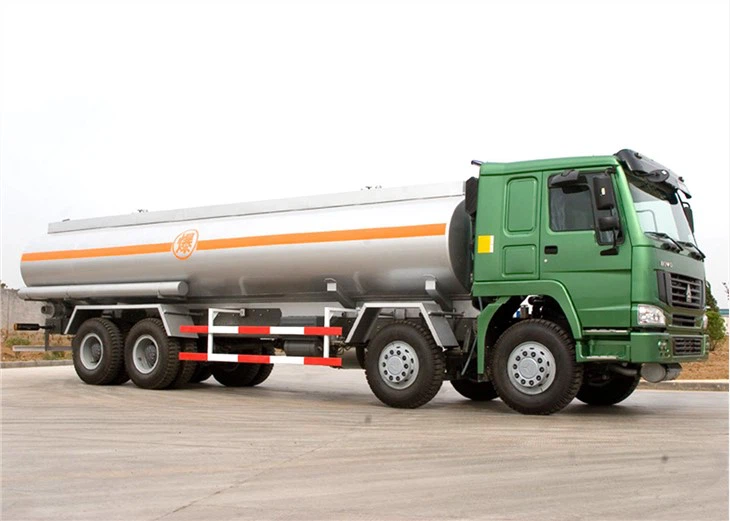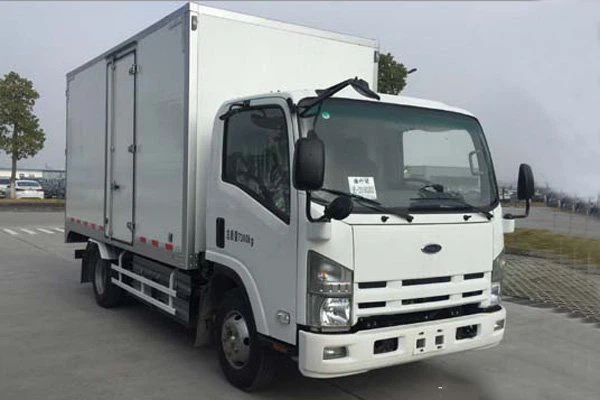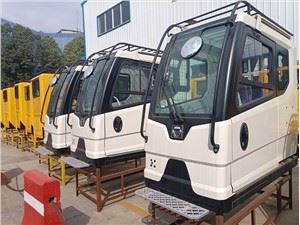Everything You Need to Know About Road Sweepers: The Ultimate Guide

Introduction
Road sweepers play a critical role in maintaining the cleanliness and appearance of our streets, highways, and public spaces. By effectively removing debris, litter, and pollutants, these specialized vehicles help promote safety, enhance aesthetics, and protect the environment. In this comprehensive guide, we will explore the different types of road sweepers, their benefits, how they work, and tips for choosing the right model for your needs. This article aims to equip you with valuable insights about road sweepers, making it an essential resource for municipalities, property managers, and anyone interested in urban maintenance.
What Are Road Sweepers?
Road sweepers are specialized vehicles designed to clean streets and other paved surfaces. They use various mechanisms to collect debris, dirt, and refuse, ensuring roadways remain safe and visually appealing. Typically equipped with rotating brushes, vacuum systems, and debris containers, road sweepers can efficiently strip away unwanted materials from urban environments.
The Importance of Road Sweeping
Regular road sweeping contributes to:
- Improved road safety by reducing hazards caused by debris.
- Enhanced aesthetic appeal of public spaces.
- Environmental protection through pollution removal.
- Reduction of harmful pollutants entering the stormwater system.
- Increased lifespan of road infrastructure.
Types of Road Sweepers
Road sweepers can be categorized into several types based on their design, mechanism, and intended use. Understanding these categories is essential for selecting the most suitable option for your cleaning needs.
1. Mechanical Road Sweepers
Mechanical road sweepers operate using brushes and a collection hopper. The rotating bristles sweep debris towards a central vacuum or conveyor system that transports the waste to a holding container.
Examples of Mechanical Road Sweepers
Mechanical road sweepers are commonly used in highways, city streets, and parking lots. Notable models include:
- Sweeper units from brands like Schwarze and Elgin.
- Compact sweepers designed for small urban areas.
2. Vacuum Sweepers
Vacuum sweepers use suction mechanisms to collect debris. They are especially effective for picking up fine particles, leaves, and gravel.
Key Features of Vacuum Sweepers
- High-efficiency particulate air (HEPA) filters.
- Adjustable suction power.
- Versatility for various cleaning environments.
3. Regenerative Air Sweepers
Regenerative air sweepers use compressed air to dislodge debris, which is then vacuumed up. They are known for minimizing water usage and providing thorough cleaning.
Applications of Regenerative Air Sweepers
Ideal for urban settings, road works, and construction sites, regenerative air sweepers are highly effective on sensitive surfaces and can manage diverse debris types.
4. Broom Sweepers
Broom sweepers utilize a rotating broom to agitate debris and push it into a collection area. They are typically used for light cleaning tasks and easy maneuverability.
How Road Sweepers Work
Understanding the mechanics of how road sweepers function can help users appreciate their efficiency. Common components of road sweepers include:
Main Components
- Brushes: The primary tools for dislodging debris.
- Vacuum System: Collects dirt and grime post-brushing.
- Debris Container: Stores the collected waste for disposal.
- Water System: Minimizes dust and keeps debris manageable.
Operational Process
- The sweeper drives along the road.
- Brushes rotate and make contact with the ground.
- Debris is swept into the vacuum area.
- The vacuum system sucks up the debris.
- Collected waste is stored in the container for proper disposal.
Benefits of Using Road Sweepers
Investing in road sweepers carries numerous benefits, both environmental and economic.
1. Environmental Impact
Regular sweeping prevents debris from entering water systems, reducing pollution levels. Additionally, road sweepers can collect litter and leaves, decreasing the chance of flooding caused by clogged drains.
2. Cost-Effectiveness
Road sweepers can save municipalities money in the long run by avoiding costly repairs to infrastructure damaged by debris accumulation.
3. Improved Public Health
By removing debris, road sweepers help reduce allergens and rodent populations, contributing to healthier communities.
Choosing the Right Road Sweeper for Your Needs
When selecting a road sweeper, consider the following factors:
1. Size and Capacity
Determine the size of the areas you plan to clean and choose a sweeper that can efficiently navigate that space. Larger models can cover more ground but may be cumbersome in tight areas.
2. Type of Debris

Assess the types of debris you expect to encounter. For heavy-duty needs, consider a vacuum or regenerative air sweeper; for minor litter, a broom sweeper may suffice.
3. Budget
Evaluate both the initial purchase price and the long-term operational costs, such as maintenance and fuel consumption.
4. Brand Reputation

Invest in reputed brands known for quality and efficiency. Research reviews and testimonials for valuable insights.
Maintenance of Road Sweepers
Proper maintenance is key to extending the operational life and efficiency of road sweepers.
Routine Inspections
Schedule regular inspections of mechanical parts, vacuum systems, and brushes to detect issues early on.
Cleaning Procedures

Regularly clean out the debris container and vacuum system, as well as any filters, to ensure optimal performance.
Parts Replacement
Replace worn-out brushes and other critical components to maintain efficiency and avoid costly repairs.
Examples of Road Sweeper Applications
Road sweepers serve a variety of applications across different sectors:
1. Municipal Roads
Cities often employ road sweepers for regular street cleaning, particularly before and after events that attract large crowds.
2. Parking Facilities
Shopping malls and large parking lots utilize sweepers to maintain cleanliness and aesthetic appeal.
3. Construction Sites
After construction activities, road sweepers are essential for cleaning debris and maintaining site safety.
Future Trends in Road Sweeping Technology
As technology advances, road sweepers are becoming more efficient and eco-friendly.
1. Electric Sweepers
With the push towards sustainability, electric-powered road sweepers are gaining popularity, significantly reducing emissions.
2. Smart Technology
Integrating GPS and IoT capabilities allows for real-time monitoring and optimizing cleaning schedules based on traffic patterns and debris accumulation.
FAQ Section
1. How often should roads be swept?
The frequency of road sweeping depends on traffic volume, the type of debris common in the area, and local regulations. Typically, urban areas may require daily or weekly sweeping, while rural areas may be swept monthly.
2. Can I rent a road sweeper instead of purchasing one?
Yes, many companies offer road sweeper rentals, which can be a cost-effective solution for temporary or irregular cleaning needs.
3. How do road sweepers impact the environment?
Road sweepers help protect the environment by preventing pollutants from entering water systems and reducing the accumulation of waste in urban areas.
4. What is the best maintenance practice for road sweepers?
Regular inspections, cleaning of debris containers, and timely replacement of worn parts are essential practices for maintaining road sweepers.
5. Do road sweepers require special training to operate?
Yes, operators typically need training to safely and efficiently operate road sweepers, ensuring they understand the vehicle’s mechanics and safety protocols.
6. Are road sweepers effective on all surface types?
While road sweepers are primarily designed for paved surfaces, some models can handle a variety of terrains, including gravel roads, depending on their design and specifications.
